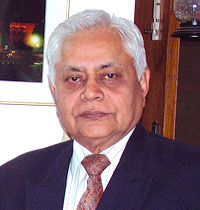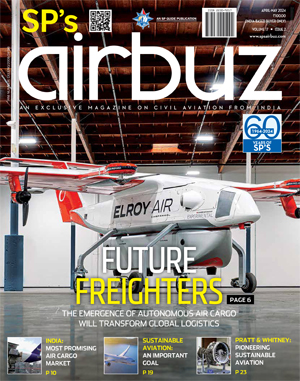A Word from Editor

The biggest aviation event in recent times was United Technologies Corp. announcing the completion of its acquisition of Rockwell Collins and the formation of Collins Aerospace through the combination of UTC Aerospace Systems and Rockwell Collins. Collins Aerospace supplies electrical, mechanical and software solutions across all major segments of the aerospace industry and serves commercial and military customers. Gregory Hayes remains as the Chairman and Chief Executive Officer of United Technologies. Our lead story in this issue gives an overview of this acquisition and merger.
There are two major emerging concerns that are influencing the course of the development of the global civil aviation industry and this phenomena is relevant to the Indian civil aviation industry as well. The first of the two factors is the deleterious impact of a variety of toxic emissions by the civil aviation aircraft, both airliners as well as business jets, on the environment by way of not only enhancing levels of pollutants in the atmosphere, but in the ultimate analysis, contributing to global warming. The second issue that plagues the civil aviation industry is the perpetually escalating cost of Aviation Turbine Fuel (ATF) which constitutes 40 per cent of the cost of operations of airliners.
This has driven the leading manufacturers of civil aircraft and aero engines to innovate and search for technologies to develop power plants that provide higher levels of fuel efficiency and generate less noise. In this issue of SP’s AirBuz, in separate articles, Joseph Noronha and Zorawar Singh Jaiswal have carried out detailed review of the technologies that are being developed to reduce fuel consumption and address environmental concerns. In another article, A.K. Sachdev has traced the development of the Pratt & Whitney PurePower PW800 aero engine that has been designed to address the problems looming on the horizon.
Apart from environmental concerns, problems in the management of air traffic impinging on air safety that are escalating rapidly is the proliferation of Unmanned Aerial Systems in the civil domain, also known as Drones. The Directorate General of Civil Aviation has finally come up with a policy to regulate operations of Drones in the Indian airspace. This policy is to be in place with effect from December 1 this year. In this issue of the magazine there are detailed analyses by Sai Pattabiram founder and CEO of Shree Sai Aerotech Innovations and Zuppa, the only Made in India Drone as also by Rohit Srivastava of the problem of proliferation of Drones in the country and the move by the DGCA to put in place an effective regulatory mechanism.
A significant development in the global domain of business aviation has been the launch of its business aviation wing by All Nippon Airways (ANA). This venture has been undertaken starting with just a pair of HondaJets HA-420, light–weight business jets. However, as the potential if this business model is promising, ANA plans to expand the fleet and provide far better international connectivity. A report on this venture has been included in this issue of the magazine.
All this and more in this issue of SP’s AirBuz. Welcome aboard and wish you happy landings!
Jai Hind!





